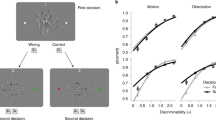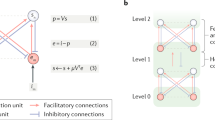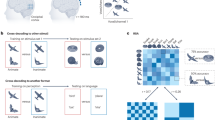Abstract
IT is well known that subjective ideas of probability differ from predictions made using statistical laws. This has been shown in temporal predictions by Jarvik1, Cohen and Hansel2 and others. It has also been shown by me3 to be the case for predictions about spatial ordering.
This is a preview of subscription content, access via your institution
Access options
Subscribe to this journal
Receive 51 print issues and online access
$199.00 per year
only $3.90 per issue
Buy this article
- Purchase on Springer Link
- Instant access to full article PDF
Prices may be subject to local taxes which are calculated during checkout
Similar content being viewed by others
References
Jarvik, M. E., Amer. Psychol. (abstract), 1, 453 (1946).
Cohen, J., and Hansel, C. E. M., Brit. J. Psychol., 46, 178 (1955).
Dale, H. C. A., M.R.C. App. Psychol. Res. Unit Report No. 280.
Edwards, W., Amer. J. Psychol., 66, 349 (1953).
Whitfield, J. W., Biometrika, 34, 292 (1947).
Author information
Authors and Affiliations
Rights and permissions
About this article
Cite this article
DALE, H. Subjective Probability, Gambling and Intelligence. Nature 181, 363–364 (1958). https://doi.org/10.1038/181363b0
Issue Date:
DOI: https://doi.org/10.1038/181363b0
Comments
By submitting a comment you agree to abide by our Terms and Community Guidelines. If you find something abusive or that does not comply with our terms or guidelines please flag it as inappropriate.



